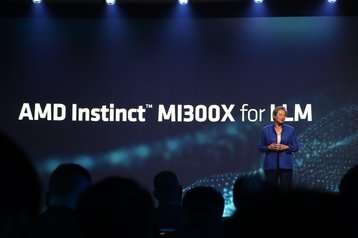The US Commerce Department has blocked AMD from selling an AI chip specifically tailored to the US market, claiming that it is still too powerful.
According to a report by Bloomberg, despite being designed to meet US export restrictions, the department has told AMD it must obtain a license from the Bureau of Industry and Security if it wants to sell the chip in China.
The US is currently engaged in a trade war with China and has imposed controls on the export of some types of chips to the country to stop it from developing advanced AI systems and to prevent it from having access to technology that could be used for military modernization and human rights abuses.
The rules also prohibit US businesses from trading with non-US companies that are exporting the restricted technology to China, which means organizations such as Nvidia, AMD, Arm, TSMC, and ASML are now prohibited from selling into what was previously a significant market for them.
In order to continue trading in the country, chip companies such as AMD and Nvidia have developed less powerful versions of their AI chips specifically for the Chinese market. AMD’s offering is the Instinct MI309, believed to be a weakened version of its MI300 series. However, the company has not released any information related to the specifications of the Instinct MI309.
Nvidia has also developed stripped-back variants of existing products in order to comply with the export rules. These include the HGX H20, L20 PCIe, and L2 PCIe chips.
Earlier this year, it was reported that - despite the sanctions - Chinese military institutions, state-run AI research centers, and universities across the country have been purchasing Nvidia GPUs, with publicly available tender documents showing that there have been over 100 transactions relating to the sale of A100 chips over the last year, with H100, A800, and H800 chips also being procured in spite of the bans.







